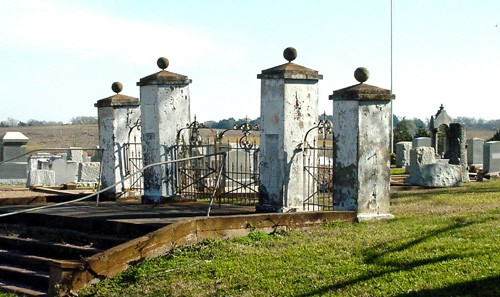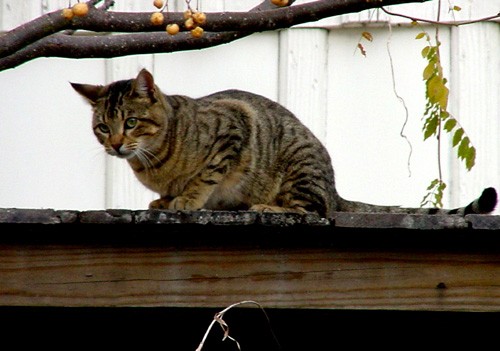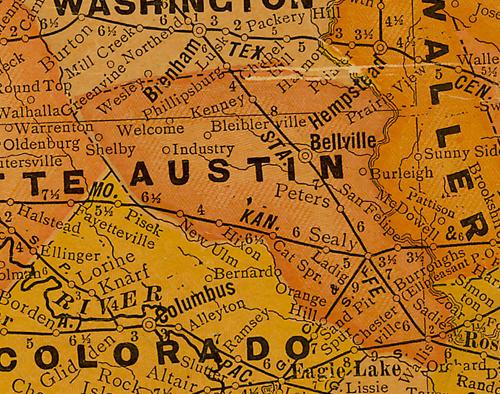New Ulm, Texas, Austin County. (original) (raw)
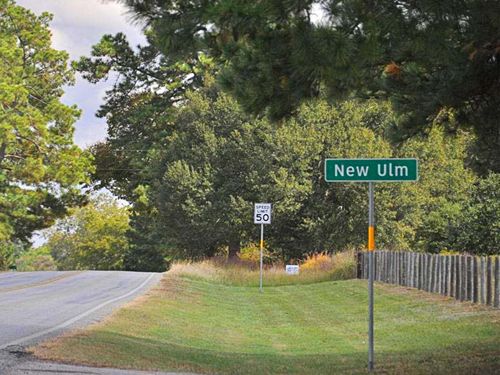
History in a Pecan Shell
New Ulm is one of the premier German settlements in Texas. There's a lot of history for such a small and tranquil place. Richard King of the King Ranch passed through New Ulm and tried his hand at cigar manufacturing before heading south and in the 1920s a New Ulm store was burgled by none other than one of the Newton Boys, although we can't remember which one.
Like many towns in Austin and Fayette Counties, the original settlers were Anglo-American settlers who sold out to eager German buyers who arrived literally by the boatload in the 1840s and 50s. The original name of Duff's Settlement was replaced with the much more Germanic name with the founding of the post office in 1852.
As early as the 1850s New Ulm had six general stores, five blacksmiths, and three breweries. Tobacco was a major cash crop and cigars were manufactured in homes and at least one factory. The arrival of the railroad (Missouri, Kansas and Texas) in 1892 just increased New Ulm's already prosperous economy.
There were 500 people in New Ulm in 1930. Current population estimate is at 650, same figure since 1990.
There were enough surviving 19th century buildings to get New Ulm featured in Texas Public Buildings of the 19th Century by Williard B. Robinson, a favorite reference of ours.
1936 Texas Centennial Marker (FM 109, New Ulm School grounds):
Site of Town of New Ulm
Site of the town of New Ulm. First known as Duff's Settlement in honor of James C. Duff to whom the land was granted in 1841. Settled by Germans after 1845 and renamed in honor of the German city of Ulm.
(1936)
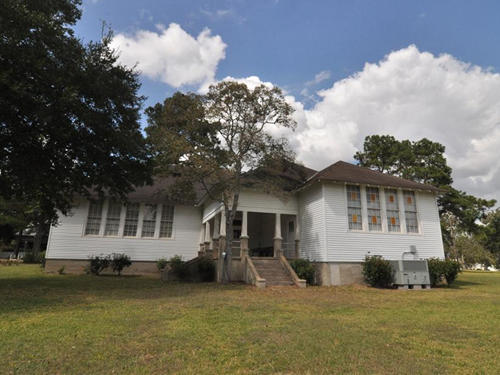
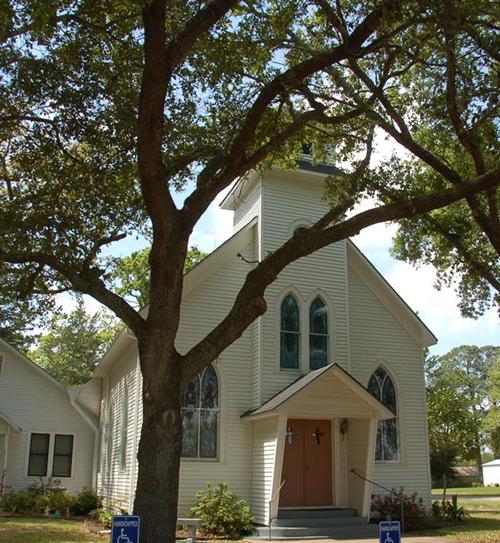
New Ulm St. John Lutheran Church
Photo Courtesy Gerald Massey, October 2010
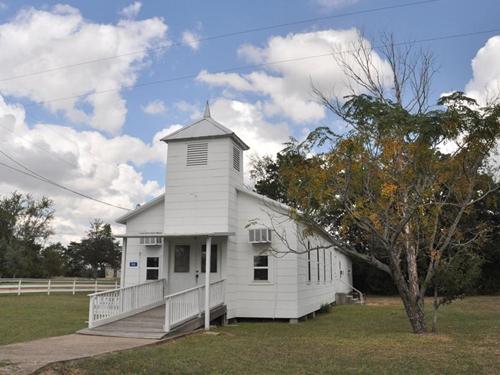
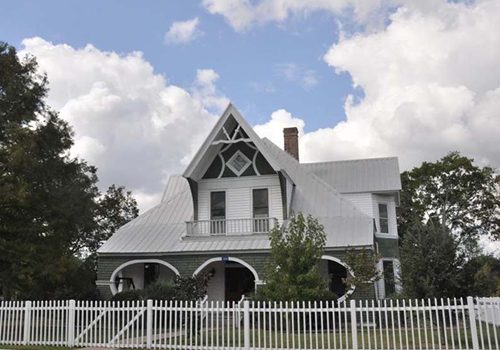

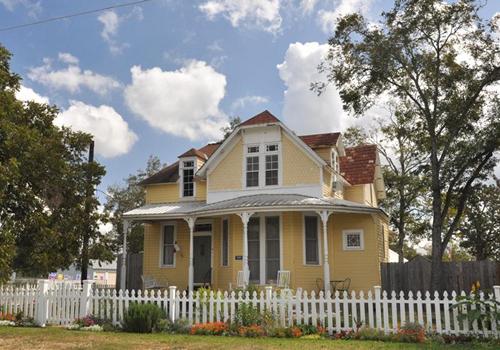
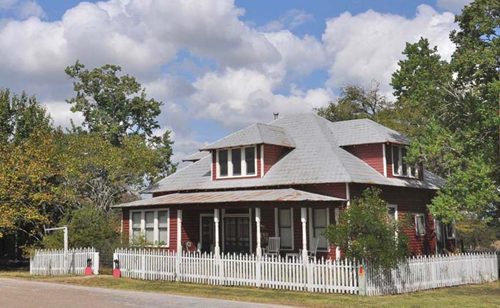
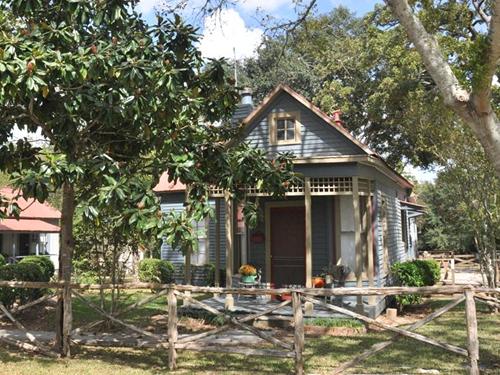
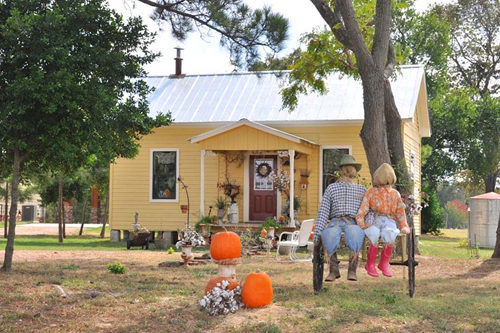
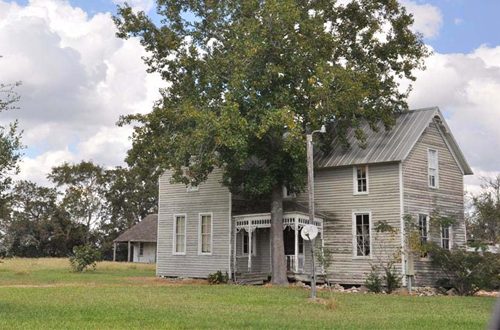
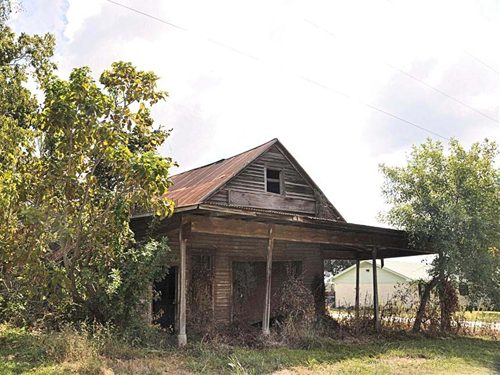
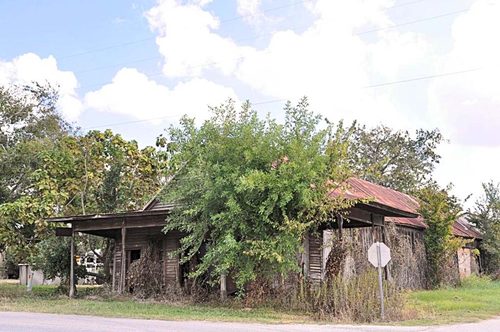
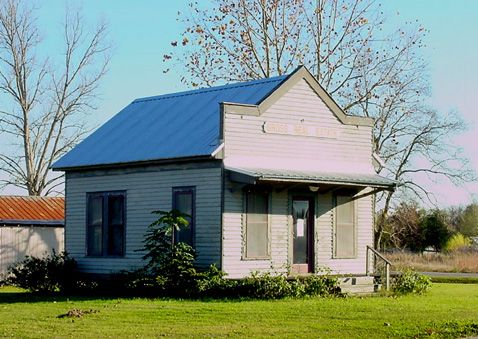
Former Real Estate Office
TE Photo, 2001
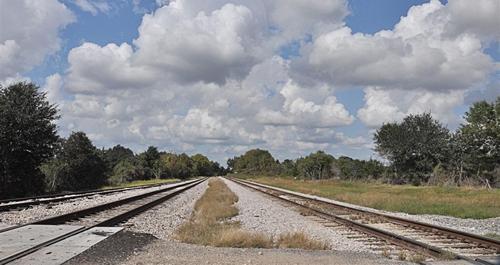
Cultivated flowers in New Ulm
Photos courtesy Cissy Wong, 2000
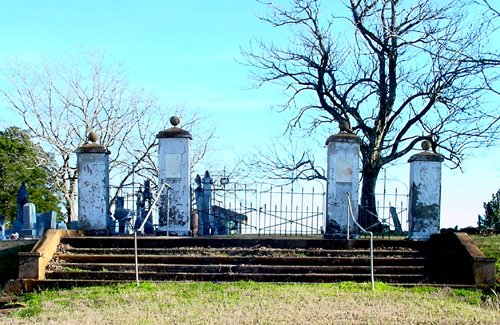
Texas Escapes, in its purpose to preserve historic, endangered and vanishing Texas, asks that anyone wishing to share their local history, stories, landmarks and recent or vintage photos, please contact us.
